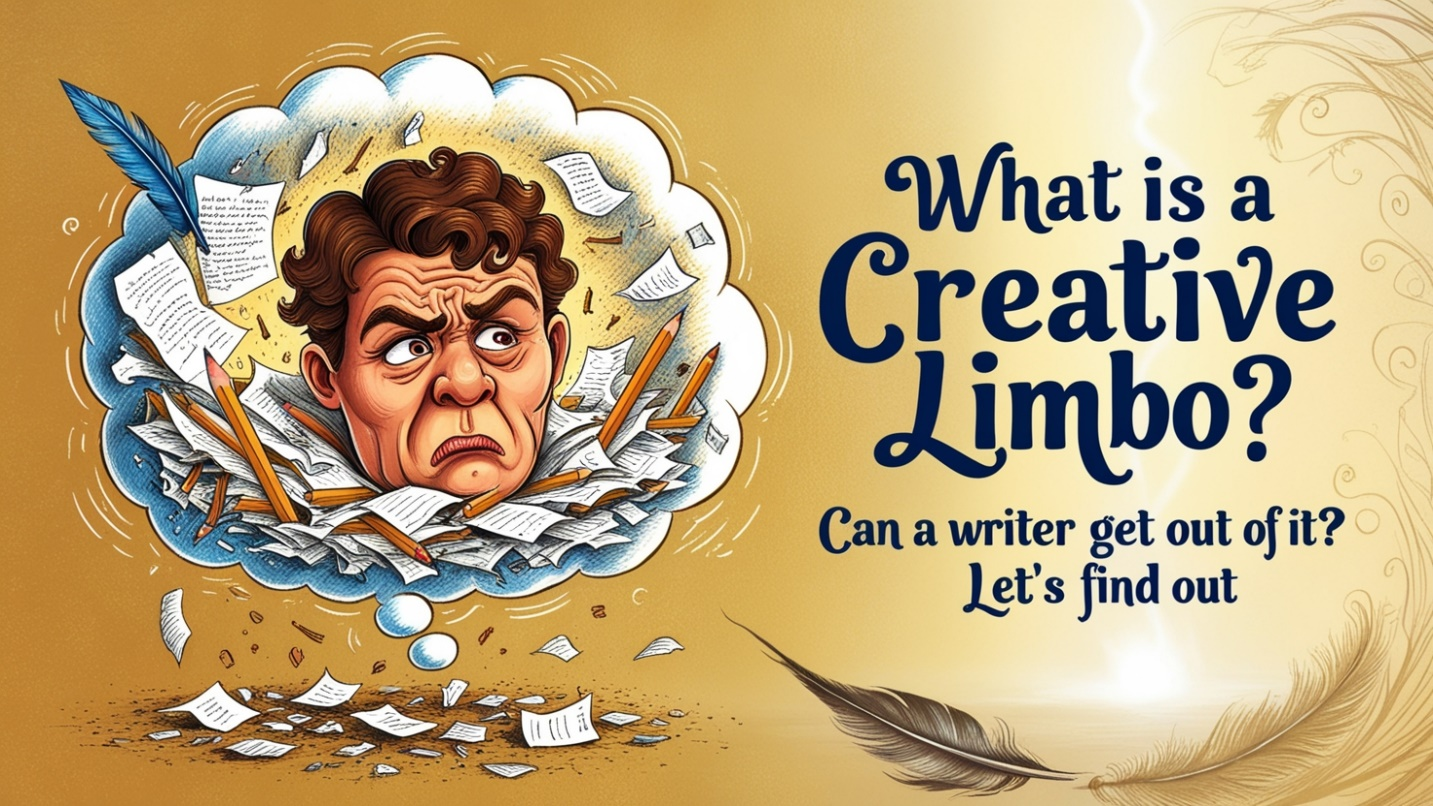Today we have an interesting blog for you because we are going to talk about a situation that might be very relatable to you if you have ever tried writing something or creating something from scratch.
The problem that we are going to talk about is faced by artists and creative thinkers around the world and this is especially true when it comes to creative writing.
If you have ever tried to write something then you know it takes a lot of discipline and commitment and it also takes time and patience.
There are a lot of investments to be made when you want to write something whether it is time or patience or even hard work.
And of course, there is the element of creativity and experience and all of that comes together to help you write something truly unique and spectacular.
However, there is a problem with this equation. There is an element to creativity that is often overlooked but this is something that has the ability to stop your entire creative process.
We are talking about the situation where the writer simply cannot come up with new ideas and this is when their entire creative process stops.
This is called a creative limbo.
Today we are going to help you understand what this actually means for the writer and we are going to try and understand why this happens during a creative process.
So, let us start this block by understanding what is a creative limbo.
What Is a Creative Limbo?
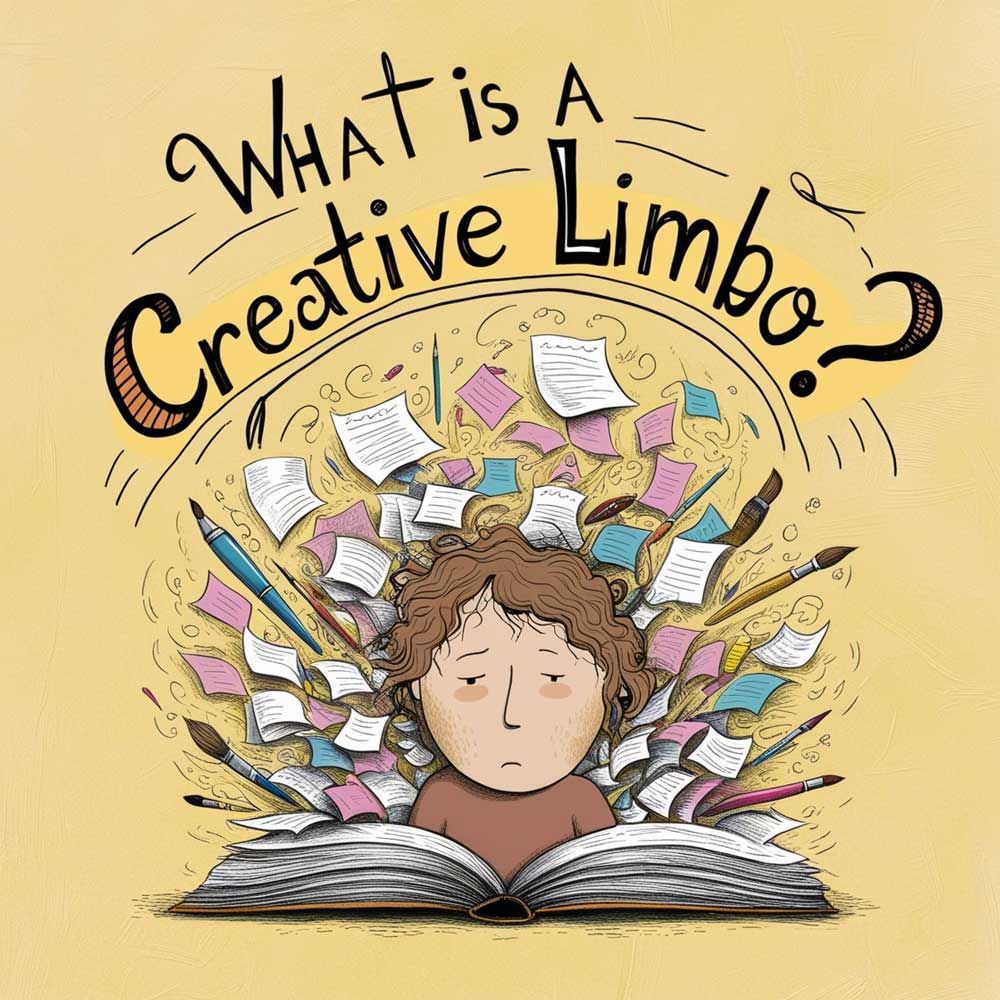
A creative limbo or being in a limbo is when a writer faces a creative blockage that simply does not allow inspiration to flow through their mind.
The problem with limbo is that the more the creative person tries to get rid of it the more it becomes heavy on their minds.
The simplest way to understand it is to think of a situation when a writer simply cannot complete his daily tasks which might be a fixed word limit or a fixed number of chapters simply because they do not have the motivation to do so.
It might also be the case that they have the will and passion to do so but they do not have any kind of inspiration to keep on moving the storyline and imagining and writing about it.
A creative limbo can set in even when everything feels alright from the inspiration to the motivation but then again there is yet another element that might make the author or writer feel like they do not want to write anymore.
We are talking about the direction of a story because a creative limbo sets in when the writer simply does not have a clear distinct direction to follow in the story.
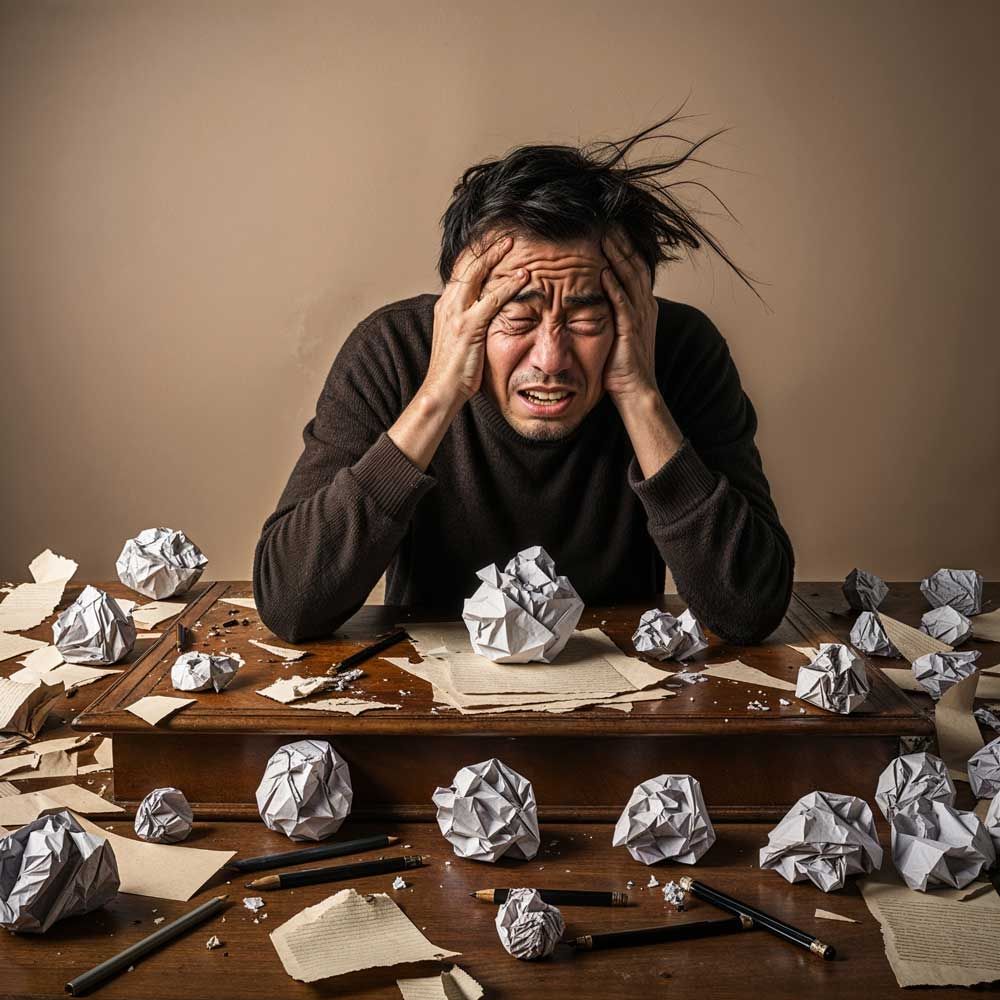
Let us help you with an example you probably have seen a countess times. You might have seen pictures of writers trying to write something but then crumpling up and binning the text as they are simply not happy with the results as crumpled papers keep piling up around them and that is exactly the case here.
A creative limbo can be all these situations individually or it might be a combination of all the above and it is sometimes called writer’s block.
Causes and Characteristics of Creative Limbo
Emotional Blockage
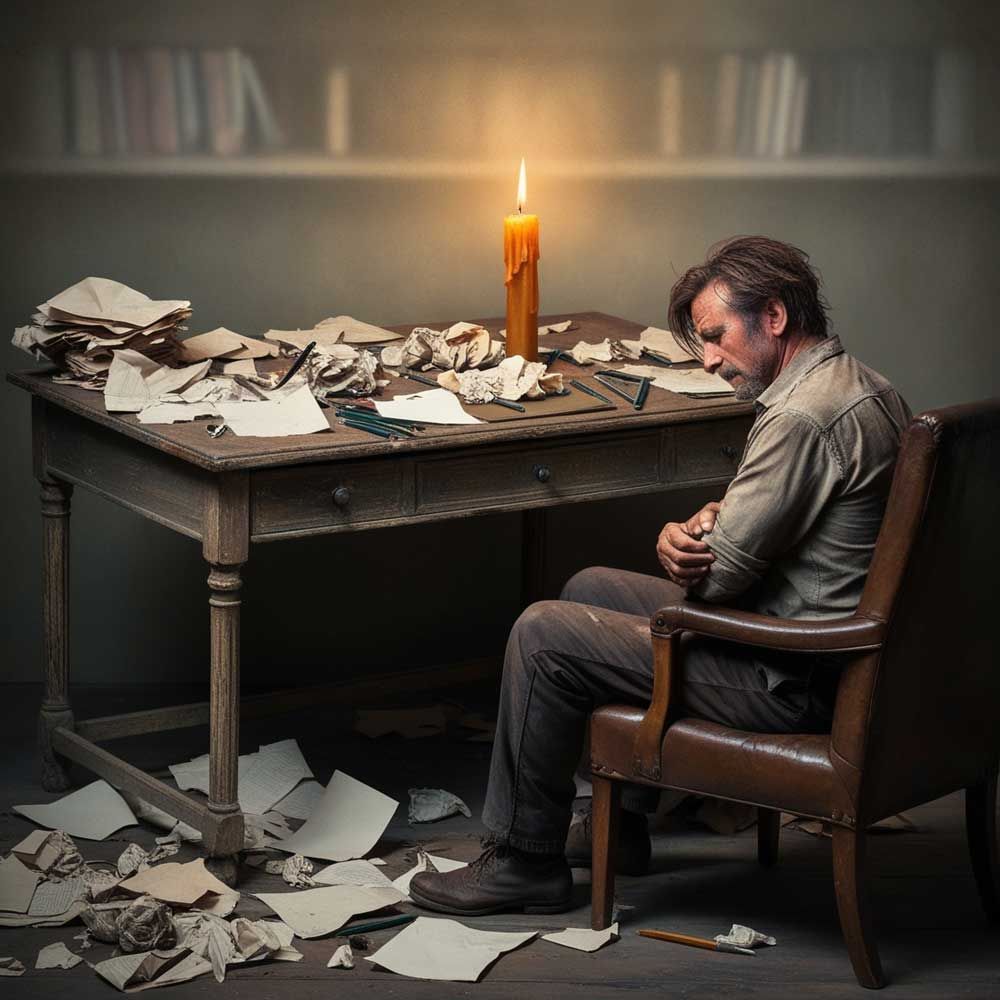
One of the most significant signs that you are facing limbo is when you simply cannot try and clear the mental fog on your mind.
When a writer decides to write something, it is equal part intelligence and equal part emotion and the writer has to be emotional about what they are writing and completely immerse themselves inside the text.
If you feel like you are simply not being able to emotionally connect with what you are writing then you might probably have creative limbo.
The problem with something like this is that it is not a physical state that can be diagnosed by a healthcare professional because it is just a state of mind that is preventing you from thinking clearly and connecting with your work.
Depression

One of the other reasons why a writer can face creative limbo it’s simply because of depression and this is actually one of the leading causes of writers simply not being able to write something for days or months.
Depression is something really terrible and it can happen to everyone including writers and when a writer starts to feel depressed, it can have a negative impact on their ability to write or even think.
However, you must not confuse depression with hard times because hard times has the opposite effect on writers and might even inspire them to write something brilliant.
Depression is different because it is something that simply cannot be used in any shape or form. Depression stops all creativity.
Self-Doubt

Self-doubt is a part and parcel of any creative person’s journey and self-doubt is quite natural but the problem with this kind of doubt is that some people find it difficult to handle.
If you are just starting out your first book then you are going to experience self-doubt in epic proportions and you are going to doubt yourself every day.
This is just natural because you are doing something out of your comfort zone and you are simply exploring new territory and always thinking to yourself that you should just stop the journey.
This is when creative limbo takes place because when a writer has self-doubts, they can either keep on working on it until they finish the thing there started or they can let the self-doubt take over their minds.
Lack Of Direction

The points that we have been mentioning till now were mostly associated with emotions or confidence but this is a purely technical reason or symptom of a creative limbo.
When you are writing a story and you are creating the plot lines, you might encounter multiple choices and very hard decisions on which way to bend the story.
If you engage with your creative process in a planned order like that by creating a plot before you start writing the body of the text then by the time you write the actual text you are not going to have any doubts regarding the direction of the story.
However, some authors do not create plot lines and they just make things up as they go. This is the case with fiction but most importantly non-fiction and the plot can move in various directions like branches of a tree.
This is where the author starts to doubt the process of writing the book because they do not know which direction to take for the story.
The creativity simply stops at this point and this is also one of the very best examples of falling into a limbo.
Fatigue

It has been scientifically proven that the more tired you are, the more difficult it is for you to pursue creativity or express cognitive ability.
However, writers sometimes can simply push themselves to the brink of creative collapse.
When a writer follows prolonged engagement on a project and spend their entire days and nights on a project, they can simply experience burnout.
When this happens, they simply cannot stay just as creative and this leads to a lack of inspiration and a loss of passion and motivation.
This situation is extremely common and there are countless instances of famous writers around the world experiencing something like this because they had to match a deadline and pushed themselves too hard.
The problem with pushing yourself too hard when it comes to creativity is that you might actually degrade the quality of your work if you try too hard. Creativity is spontaneous and should be spontaneous and not forced and if you try to counter creative limbo with force then that is not the solution.
Frustration

The life of a writer is full of problems and troubles and it is especially the case for a first-time writer writing their first piece of work they intend on publishing.
If you are just starting out as a writer then that probably means you already have a day job and also responsibilities of your family.
In spite of that, you take the time out and muster up the courage to write a book knowing very well that it might not lead to economic success.
You decide to invest in the book and you decide to basically take a gamble on your creative abilities and your intuition of writing something excellent.
These kinds of burdens can be quite frustrating to any writer and author and frustration is never far from the life of a creative person.
This is also something that has the potential to cause a creative limbo because when a situation like this happens, the writer tries to out-perform themselves and they try at perfectionism.
The problem with perfectionism is that they are never really satisfied with what they are writing and since they have gambled so much of their time, effort and resources on something, things can get frustrating.
Schedule Problems
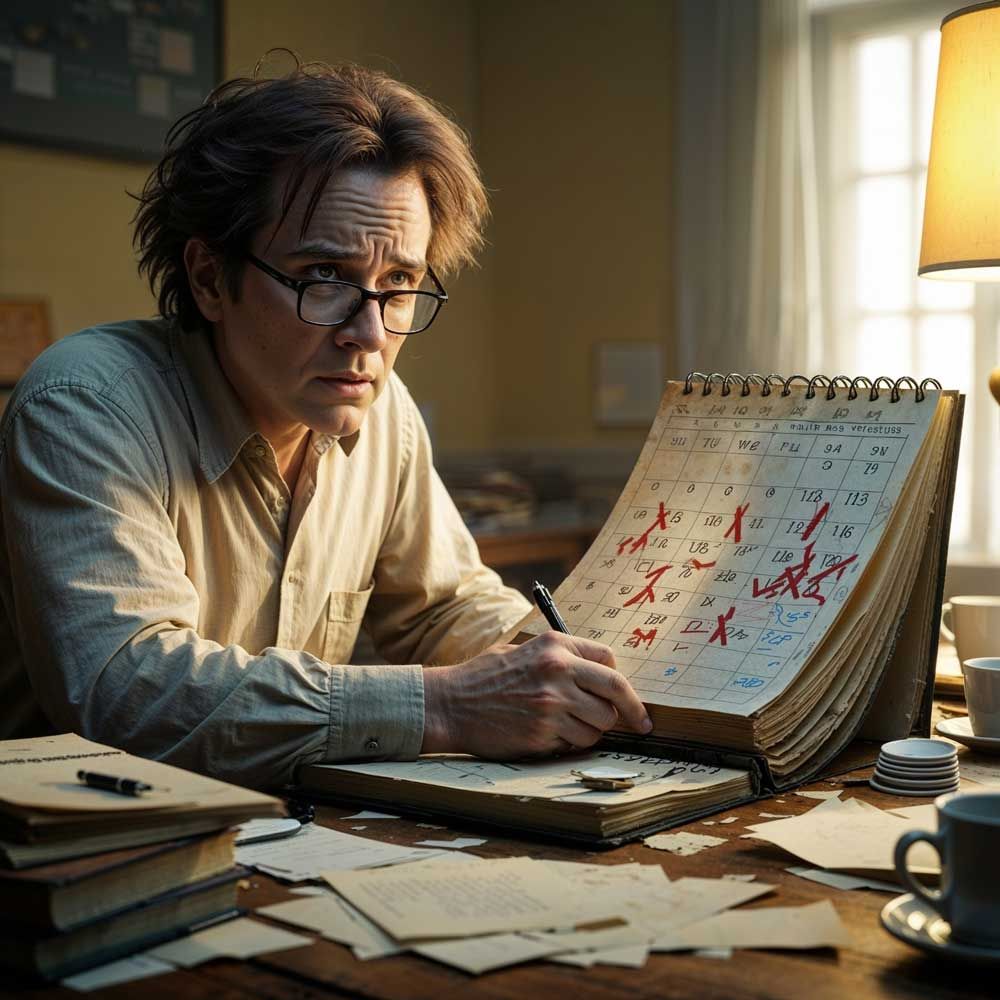
Creating a writing schedule is a difficult job especially if you think about all the effort it takes to write a book. You need to spend time on research and you need to spend countless hours on creating the perfect plot.
Apart from that you also have to think about keeping aside extra time for the editing process and if you add up everything you get a very long duration which seems like forever.
What usually happens is that writers start slow and then they pick up speed and it has to be like this because if they do not pick up speed then they simply will not be able to finish something within a deadline.
That is where we come to schedule problems because writers usually might aim for goals like two or three hours of writing every day but if they are not able to achieve that goal, it gets frustrating.
When a writer loses a daily sense of achievement of completing a set number of goals every day when it comes to writing, we see the introduction of creative limbo.
So, How Do You Deal with Creative Limbo? The Solution
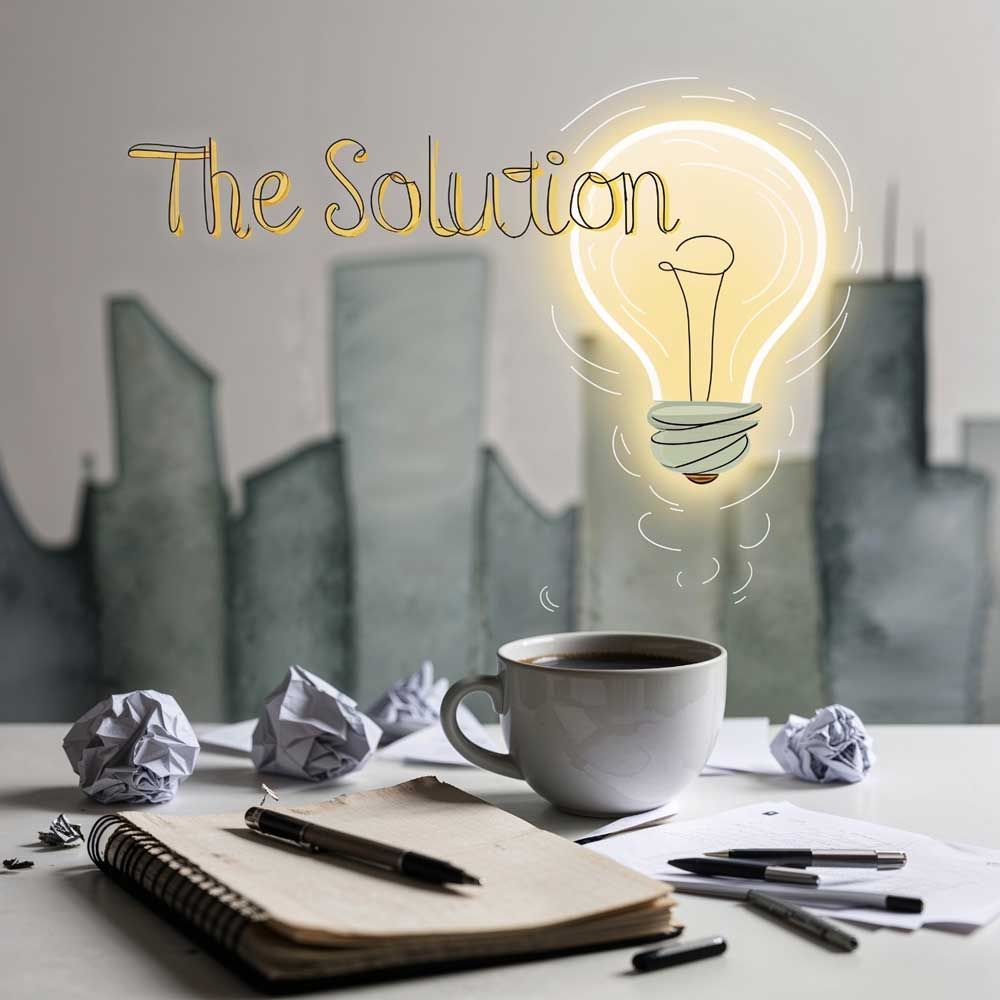
The solution to creative limbo is actually simple enough because the solution to this incredibly difficult problem has to come naturally.
One of the best ways to avoid a creative limbo in the first place is excellent planning before jumping right into the content.
If you have planned out everything from the beginning right from the plot to the research material and have everything close by during the writing process, your chances of encountering a creative limbo are low and this is because you already have what it takes to write the book.
However, in spite of all that, if you still manage to experience this very terrible problem that writers experience, the only true solution is to never steamroll your way through the creative limbo.
You should of course maintain a minimal effort and try picking up from where you left and had experienced the blockage but then you should never force your way into a solution.
For example, if you are stuck on chapter 3 and you do not know how to move the story ahead then you can take a break from everything and just experience life and that will provide you with ample information and inspiration.
However, if you are stuck at chapter 3 and you decide to lock yourself in your room and keep on trying chapter 3 then it is unlikely that you are going to reach a solution easily.
We hope this blog has helped you understand what is a creative limbo as well as the solution to it. However, the problem with something like this is that you can never be 100% sure that you are going to gain back inspiration or ideas.
A creative limbo has ended the careers of excellent authors and they simply were unable to come up with inspiration after a mental blockage.
If you simply cannot move ahead with the story and if you feel like you are stuck then the only solution that is guaranteed to work would be professional help with the help of ghostwriters.
If you are experiencing creative limbo then you simply do not have to worry about it and hire a professional ghostwriter and let them continue the story and you can simply guide them.
If you are looking for some of the finest ghostwriting talent in India with the best industry reputation then we are here for you because we are Ghostwriting India and we have the best record and reputation for providing the most premium quality of ghostwriting services in India.
We will help you get out of any creative limbo and help you finish all unfinished projects and welcome you to visit our website and check out everything we do.
